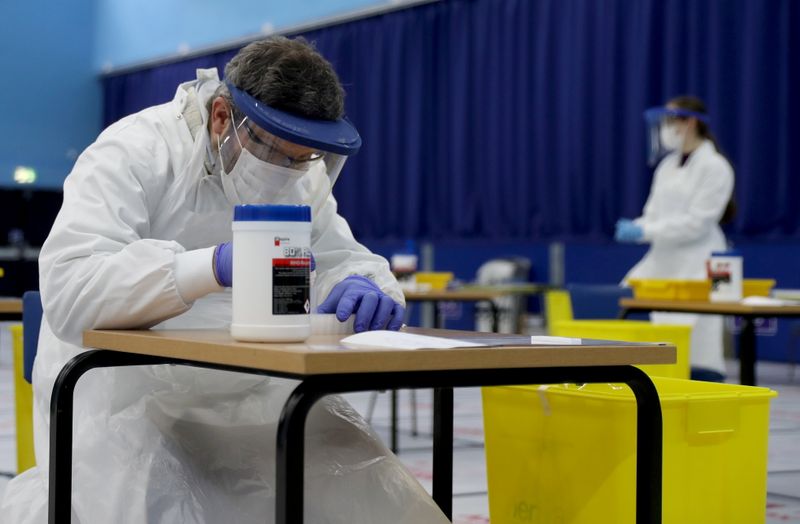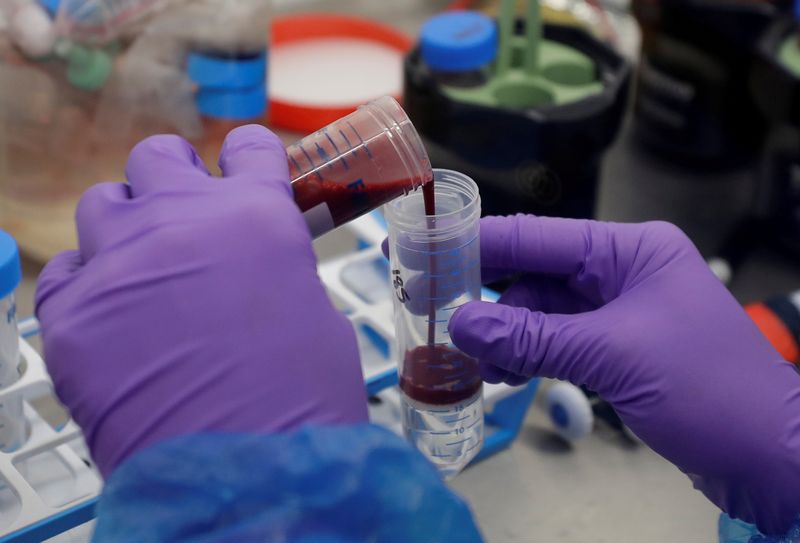LONDON (Reuters) – The COVID-19 epidemic in Britain has retreated slightly, with the reproduction “R” number estimated to be below 1, suggesting that England’s second national lockdown is stemming infections, government scientists said on Friday.
The number of new infections across Britain is shrinking by between 0% and 2% every day, the UK Government Office for Science said, after it was estimated to be growing between 0% and 2% in last week’s release.
The R number was estimated to be between 0.9 and 1, meaning every 10 people infected will go on to infect between 9 and 10 people, down from last week’s range of 1.0-1.1.
Government scientists said the estimates were based on latest data for the United Kingdom up to Nov. 24, but that lags meant the impact of national restrictions introduced in England on Nov. 5 were only just being seen and could not yet be fully evaluated.
“R estimates for England may continue to decline in the future and may be below 1 for all regions already,” the Government Office for Science said in a statement.
The lockdown in England – home to around 85% of the UK’s total population – expires on Wednesday and will be replaced with a regional system of tiered restrictions.
SOME CHRISTMAS CHEER
A third of England is facing the strictest COVID curbs after the previous tier system – imposed before the lockdown – failed to keep infection rates down. That resulted in Prime Minister Boris Johnson announcing the latest England-wide lockdown on Oct. 31.
The stricter tier system comes ahead of a planned loosening of rules for Christmas, when three households will be able to come together indoors over a period of five days.
While the scientists’ advice to relax rules for no longer than a week – and focus on limiting household bubbles and not just numbers of contacts – is being followed, a note from the government pandemic modelling subgroup SPI-M-O said the loosening of rules over the Christmas period still posed risks.
“Any relaxation over the festive period will result in increased transmission and increased prevalence, potentially by a large amount,” it said in a final version of a note dated Nov. 18 and published on Friday.
(Reporting by Alistair Smout; Editing by Kate Holton, Stephen Addison and Gareth Jones)


























